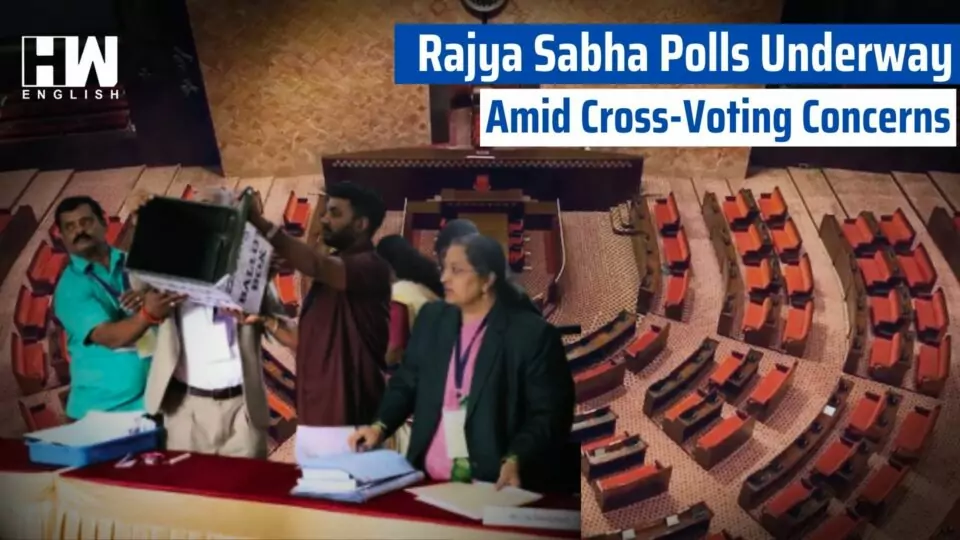The biennial elections for the Rajya Sabha began on Tuesday. Forty-one candidates are already securing seats uncontested due to a lack of opposition in Uttar Pradesh, Karnataka, and Himachal Pradesh. Uttar Pradesh witnessed a competitive scenario among the states with the BJP and the Samajwadi Party. With sufficient numbers to secure seven and three seats, respectively. The BJP’s nomination of Sanjay Seth added an element of competition for one seat.
In Uttar Pradesh, a candidate needs nearly 37 first preference votes to secure a Rajya Sabha seat. Meanwhile, in Karnataka, the ruling Congress took preventive measures by shifting all MLAs to a hotel before the election to fill four vacancies. The contest involves five candidates from Congress, BJP, and JD(S), with concerns about possible cross-voting.
In Himachal Pradesh, the Congress issued a whip to its MLAs to vote for party candidate Abhishek Manu Singhvi, leading to allegations from the BJP about exerting pressure on MLAs. Despite the Congress having a majority, BJP claimed that legislators have the right to vote independently.
Among the 41 candidates who secured their seats uncontested are notable figures like BJP President JP Nadda, Union Education Minister Dharmendra Pradesh, Union IT Minister Ashwani Vaishnaw, and former Congress chief Sonia Gandhi.
Also Read: Anti-Muslim Hate Speech In India Jumps 62%
While 41 members have been declared winners, the remaining 15 seats, including 10 in Uttar Pradesh, four in Karnataka, and one in Himachal Pradesh, are expected to witness intense competition. Uttar Pradesh and Karnataka are anticipated to have closely contested battles.
The elections also saw unopposed victories in various states, including Gujarat, Rajasthan, Madhya Pradesh, Bihar, and West Bengal, with prominent figures from different parties securing Rajya Sabha seats.
A total of 50 Rajya Sabha members from 13 states are set to conclude their term on April 2, while six members from two states will retire on April 3. The ongoing elections will shape the composition of the Upper House in the coming term.
As an independent media platform, we do not take advertisements from governments and corporate houses. It is you, our readers, who have supported us on our journey to do honest and unbiased journalism. Please contribute, so that we can continue to do the same in future.

